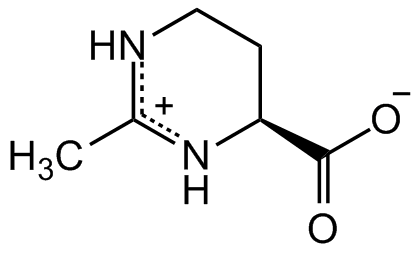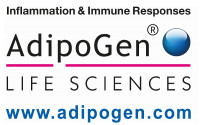Cookie-Einstellungen
Diese Website benutzt Cookies, die für den technischen Betrieb der Website erforderlich sind und stets gesetzt werden. Andere Cookies, die den Komfort bei Benutzung dieser Website erhöhen, der Direktwerbung dienen oder die Interaktion mit anderen Websites und sozialen Netzwerken vereinfachen sollen, werden nur mit Ihrer Zustimmung gesetzt.
Konfiguration
Technisch erforderlich
Diese Cookies sind für die Grundfunktionen des Shops notwendig.
"Alle Cookies ablehnen" Cookie
"Alle Cookies annehmen" Cookie
Ausgewählter Shop
CSRF-Token
Cookie-Einstellungen
FACT-Finder Tracking
Individuelle Preise
Kundenspezifisches Caching
Session
Währungswechsel
Komfortfunktionen
Diese Cookies werden genutzt um das Einkaufserlebnis noch ansprechender zu gestalten, beispielsweise für die Wiedererkennung des Besuchers.
Facebook-Seite in der rechten Blog - Sidebar anzeigen
Merkzettel
Statistik & Tracking
Endgeräteerkennung
Kauf- und Surfverhalten mit Google Tag Manager
Partnerprogramm

Bei Fragen nutzen Sie gerne unser Kontaktformular.
Bestellen Sie auch per E-Mail: info@biomol.com
Größere Menge gewünscht? Bulk-Anfrage
Bestellen Sie auch per E-Mail: info@biomol.com
Größere Menge gewünscht? Bulk-Anfrage
White solid. Soluble in water (560mg/ml) or methanol (40mg/ml). Natural chemical product. CAS:... mehr
Produktinformationen "Ectoine (ultrapure)"
White solid. Soluble in water (560mg/ml) or methanol (40mg/ml). Natural chemical product. CAS: 96702-03-3. Formula: C6H10N2O2. MW: 142.2. Isolated from halophilic bacteria Halomonas elongata. The ectoines belong to the class of compatible solutes also called extremolytes (osmolytes from extremophiles). Extremolytes stabilize biological structures and macromolecules such as lipid membranes and proteins against a variety of stress factors, including high temperature, freeze-thaw cycles, drying and degradation. These very stable, non-toxic, animal-free protective agents are powerful additives in various Life Science applications, ranging from cryoprotection of animal cells over protein storage to PCR. They are protective osmolytes selected by nature for stabilization of all proteins in the cell against denaturing environmental stress without altering their functional activity. The stabilizing effect is based on the fact, that the protective osmolytes are strong water-structure formers and as such are preferentially excluded from the protein surface. This causes an increased water density at the surface ("preferential hydration") promoting the protein's natural conformation with hydrophobic patches buried. This reduces the potential to unfold in response to physical or chemical stress and enhances the stability of the protein. Therefore, these compounds have also been termed chemical chaperones. Several studies have demonstrated the ability of extremolytes to also stabilize cell membranes and whole cells. Therefore, the extremolytes are also useful additives for the cold storage and cryostabilization of mammalian and bacterial cells. Ectoines are the best characterized extremolytes and their ability to stabilize a variety of proteins, nucleic acids, membranes and whole cells is well documented. They surpass the efficiency of common compatible solutes like betaine and trehalose in applications like protein stabilization and stabilization of desiccated bacterial cells. The ectoines are highly water-soluble, zwitterionic low-molecular weight molecules, chemically and physically stable, biologically inert and compatible with most enzymatic and binding reactions (intracellular concentrations in their producer organisms can exceed 1 M). Ectoines can be used in a wide range of applications for the protection and stabilization of biological macromolecules and whole cells, animal as well as bacterial. Ectoines protect and stabilize proteins, especially globular proteins like antibodies, in vitro and in vivo and provide an integrated solution for the optimization of protein production. They are protein-free low molecular weight additives that can be used to, i) culture media to increase the stability and solubility of expressed proteins, ii) prevent protein aggregation and proteolytic degradation during downstream processing in solutions, iii) assist in refolding of inclusion bodies in refolding buffers, iv) prevent the loss of activity due to freeze-thawing, lyophilization and damage (aggregation, proteolysis) during storage in solution, v) promote crystal formation vs. protein aggregation and to improve crystal size and quality during crystallization of proteins. Next to its stabilizing effects, ectoines show cell protective, antioxidant, neuroprotective and anti-inflammatory mode of actions that have been verified in various in vitro and in vivo studies and include protection of lipid membrane, radical-scavenging activity and protection against UVA or oxidative stress. Ectoines have protective (e.g. UV-A radiation) and destabilizing effects on dsDNA, depending on the concentration. At high ectoine concentration (2.5 M), direct interactions between compatible solute and DNA molecules are possible and provides new perspectives for biotechnical applications. Ectoine is already in use for in vitro diagnostics as an enhancer for PCR. Therefore, this molecule would be a promising candidate in facilitating isothermal DNA amplification such as recombinase polymerase amplification. In-house studies have shown that ectoine inhibits the binding of the spike protein of COVID-19 virus to lung cells.
| Schlagworte: | Ectoin, (S)-2-Methyl-4-carboxyl-1,4,5,6-tetrahydropyridine, Pyrostatine B |
| Hersteller: | AdipoGen Life Sciences |
| Hersteller-Nr: | AG-CN2-0391 |
Eigenschaften
| MW: | 142,2 D |
| Formel: | C6H10N2O2 |
| Reinheit: | >99% (HPLC) |
| Format: | Solid |
Datenbank Information
| CAS : | 96702-03-3| Passende Produkte |
Handhabung & Sicherheit
| Lagerung: | +20°C |
| Versand: | +20°C (International: +20°C) |
Achtung
Nur für Forschungszwecke und Laboruntersuchungen: Nicht für die Anwendung im oder am Menschen!
Nur für Forschungszwecke und Laboruntersuchungen: Nicht für die Anwendung im oder am Menschen!
Hier folgen Informationen zur Produktreferenz.
mehr
Hier kriegen Sie ein Zertifikat
Loggen Sie sich ein oder registrieren Sie sich, um Analysenzertifikate anzufordern.
Bewertungen lesen, schreiben und diskutieren... mehr
Kundenbewertungen für "Ectoine (ultrapure)"
Bewertung schreiben
Loggen Sie sich ein oder registrieren Sie sich, um eine Produktbewertung abzugeben.
Zuletzt angesehen




